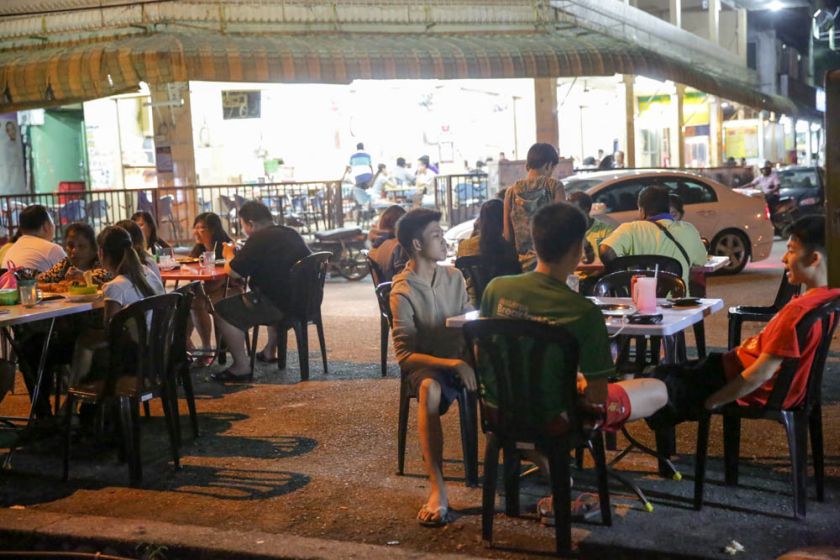KUALA LUMPUR, Jan 5 — Dietitians and public health experts have welcomed Putrajaya’s proposal to close eateries early in the country, but say education and awareness should first be made a priority.
Last week, Putrajaya mooted closing eateries such as mamak restaurants by midnight in order to discourage late night snacking among Malaysians — who have been ranked as the most obese population in Asia by the British health journal The Lancet.
“To be honest, a lot of countries don’t have 24-hour eateries, as compared to Malaysia,” said Hazreen Abdul Majid, research fellow at the Harvard TH Chan School of Public Health and also associate professor from Universiti Malaya.
“In western countries, most of the eateries take their last orders by 11pm, and drinks such as alcohol are only allowed up until 2am — this minimises access to unhealthy food and drinks,” Hazreen told Malay Mail.
However, he pointed out that the main reason why Malaysians are becoming overweight and obese is due to a sedentary lifestyle — with an unhealthy diet and also due to a lack of physical activity.
“Education definitely comes first, but we have availability and accessibility to night time food — this food can be dense in energy and unhealthy. If you take a plate of fried rice with egg you are consuming 400 to 600 calories, but Malaysians don’t even run hard an hour a day,” he said.
He said limiting the availability of such late night carbs would “potentially help” address the issue for Malaysians.
“If you see developing countries, a lot of people know smoking is bad yet they still do it. But that’s not the case in Western countries, the number is falling. So the question is even if they know it is bad are they going to practise it.
“Hence limiting potentially helps. If they don’t serve food beyond a certain hour, people have to prepare something for themselves even if they are working night shifts,” he added.
Hazreen also said that the imposition of sugar tax, something that Putrajaya is also considering as part of new health policies, has been proven to reduce the consumption of sugar sweetened drink in a lot of other countries that have imposed such a tax.
Rozanna Rosly, the head dietetic services from University of Malaya Specialist Centre, said that closing eateries early would be promoting “healthier eating habits”.
However she warned against blaming the country’s health problems on late night eateries and instead called for holistic solutions such as early education, and cultivating healthy cooking at home.
“Late operating eateries are not the primary cause of our health issue...it’s just a fraction of the problem and it’s not causal; they are the not the cause. If you’re going to penalise the eateries you have to look into the [ingredients] like the salt content, fat content, and sugar,” she said.
“And shutting eateries without implementing a more holistic policy like healthy-eating education will only prompt people to find other sources for night snacks, like going to convenience stores and stocking up on junk food,” she added.
Malaysian Dietitians Association president Prof Winnie Chee meanwhile said that Putrajaya’s proposed initiatives are good to creative a “supportive environment” for Malaysians to control their food intake.
“If eating out is less accessible to public, then it will curb extra calories intake since most of the food sold in eateries are calorie-laded,” she told Malay Mail.
However, Chee said that closing eateries early will be an “isolated initiative” and will not solve the entire problem regarding the obesity of Malaysians.
“Nevertheless, if we don’t have as many eateries, it can encourage home prepared foods instead. When I used to live overseas where restaurants close by 10 to 11 pm and it was expensive to eat out, you will just have to prepare your own home made snacks if you are hungry at night,” she said.
Chee said that for individuals who work at odd hours, closing eateries early would encourage home cooked meals which will likely be healthier.
Chee also echoed Hazreen in saying that the imposition of sugar tax has reduced sugar and sweetened beverages consumption in other countries that have implemented the policy, but said that it does not directly lead to decreased body weight.
Meanwhile, Health Ministry Director-General Datuk Dr Noor Hisham Abdullah said that the Ministry would release more information regarding their new public health policy proposals in due course.




















